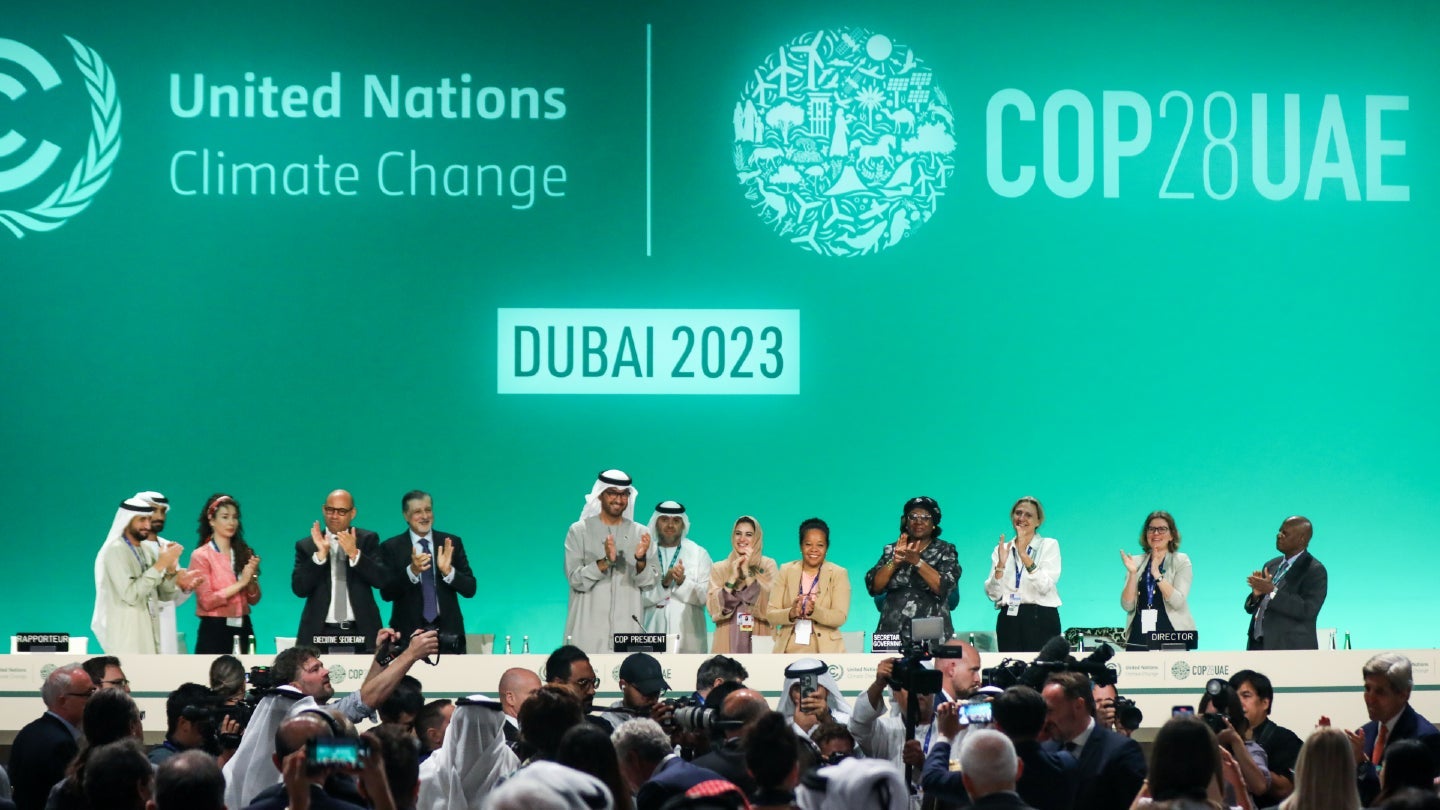
Efforts to tackle climate change should begin to focus on limiting and bringing down as quickly as possible the inevitable overshoot of the UN’s 1.5°C temperature warming target, says Andrew Griffiths, a director at sustainability certification provider Planet Mark, in a GlobalData COP28 podcast.
Appearing on the Instant Insights podcast, Griffiths was responding to the assertion by the highly regarded Swedish environmental scientist Johan Rockström that the 1.5°C target is now unachievable.
Griffiths, one of nine participants in the COP28: Insights on the climate crisis episode – from climate bodies, carbon accounting organisations and energy companies – suggested that the goal will ultimately be to keep overshoot of the 1.5°C target to a minimum and return to below the target by the end of the century.
Putting the climate situation into perspective, Nick Wayth, CEO of energy sector professional body the Energy Institute, explained: “We’re not where we need to be, we all know that. The Statistical Review of World Energy that the Energy Institute publishes tells us that emissions continued to rise last year from energy, reaching an all-time-record high, and still today 82% of our energy comes from coal, oil or gas.”
Such is the critical nature of the situation that Adel El Gammal, Secretary-General of the European Energy Research Alliance (EERA), told Instant Insights that even more controversial technologies should be considered as part of the solution.
“The emergency is such that we need to consider really all the technologies that can contribute to decarbonisation,” said El Gammal. “I think we need to take a rather agnostic view, whatever can be taken in terms of decarbonisation potential.
“This is the reason why, at EERA, we are looking at all low-carbon technologies, including, by the way, technologies which might be a little bit controversial, including carbon capture and storage or nuclear for some countries.”







